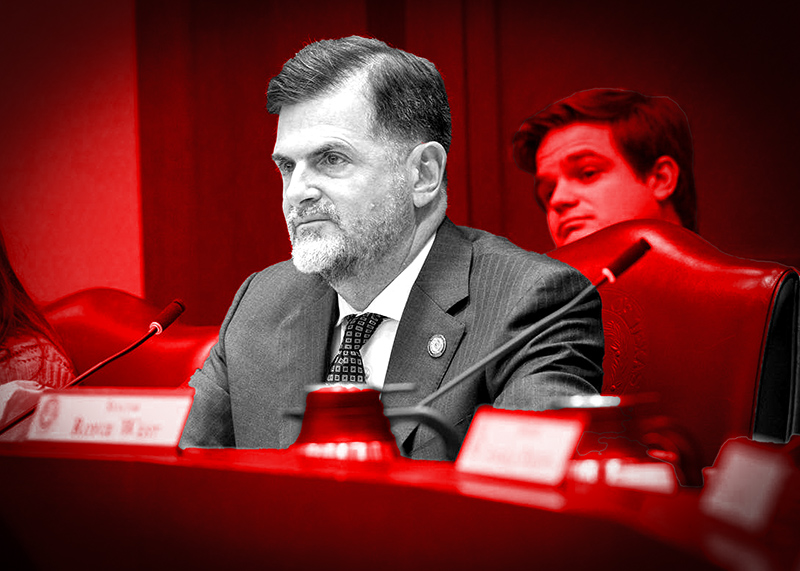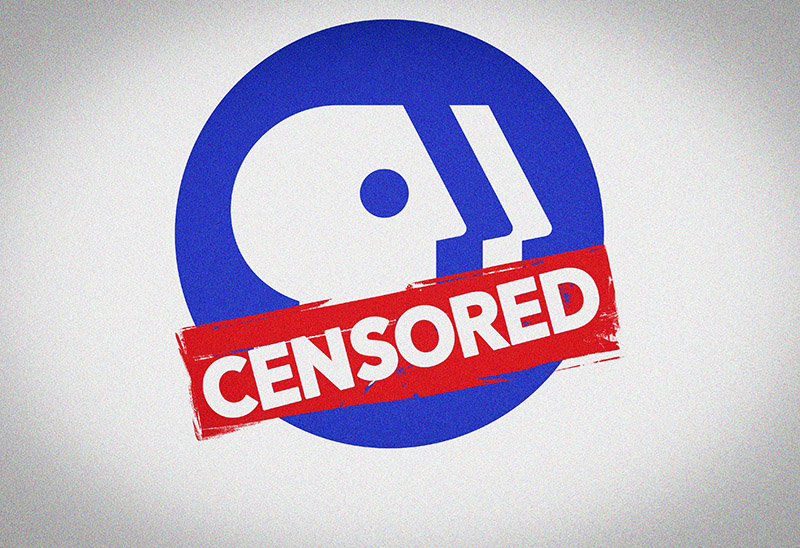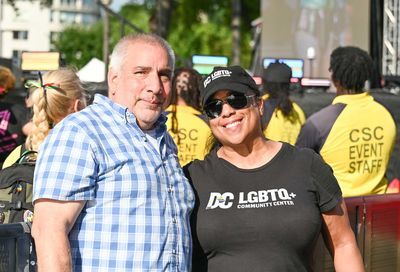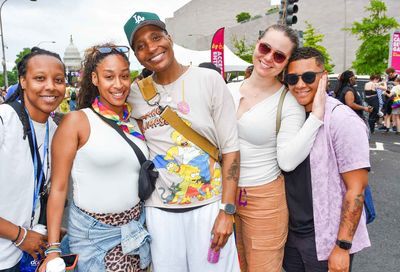Florida AG Compares LGBTQ Books to Nazi Propaganda
Florida's Attorney General defends her state's efforts to remove LGBTQ books by pushing an authoritarian view of free speech.

Florida Attorney General Ashley Moody says her state’s efforts to purge LGBTQ books from school libraries is akin to protecting children from “Nazi propaganda,” according to a recent filing.
Moody filed the brief in a case involving a legal challenge to the Escambia County School Board’s efforts to remove books with LGBTQ content from shelves in compliance with Florida’s “Don’t Say Gay” law. The law not only prohibits LGBTQ content from classroom curriculum but makes it easier to remove books from libraries that are deemed to have “sexual” content or are considered “inappropriate” for minors.
One of the books removed from shelves was And Tango Makes Three, a children’s story based on real-life events about a same-sex penguin couple that hatches an egg together and raises its chick.
The book was recently banned by Lake County Public Schools in central Florida, only to be returned to shelves after the book’s authors filed a lawsuit.
While Lake County has permitted Tango to return to shelves, the overall law still allows for other titles with LGBTQ themes or characters to be restricted, and the authors’ lawsuit has been transferred to U.S. District Court for the Northern District of Florida, due to Escambia County’s decision to remove the book from its library collections.
At the same time, the county faces a separate lawsuit from free speech and expression advocate PEN America, publishing house Penguin Random House, LLC, authors whose works have been removed from libraries, and the parents of children in the county who object to the removal of those books.
The lawsuit contends that the book removals in Escambia County are a form of viewpoint discrimination based on ideological objections to the books’ contents or disagreement with their messages, violate the First Amendment rights of the parent plaintiffs and their children by restricting their right to receive information, and violate the Fourteenth Amendment by disproportionately targeting books by non-white and/or LGBTQ authors or books with themes relating to race, gender, or sexual orientation.
But Moody argues that Escambia County’s removal of books with LGBTQ content is justified, and the lawsuit against the county should be dismissed.
“Plaintiffs challenge ‘the decisions of the Escambia County School Board (“the School Board”) to remove and restrict’ certain materials in ‘public school libraries within the Escambia County School District.’ The restrictions, Plaintiffs say, violate the First Amendment because the government may not restrict access to materials ‘based on viewpoint’ or ‘deny students access to ideas with which’ the ‘school board disagrees,'” Moody wrote.
“But public school systems make value-based judgments like that every day. They exclude materials like Nazi propaganda because they disagree that Nazis were wonderful, regardless of any educational value the materials may have.”
“Viewpoint-based educational choices are constitutionally permissible because public-school systems, including their libraries, convey the government’s message, and, when the government speaks, it may ‘regulate the content of…its own message,’ ‘including choosing not to speak and speaking through the removal of speech that the government disapproves,'” Moody continued.
“Plaintiffs — who include the authors and publishers of certain books restricted by Defendant — are free to take their concerns to the ballot box. But they have no constitutional right to inculcate Florida’s schoolchildren with their preferred ideas through Florida’s school libraries.”
More troublingly, Moody argues that schools and their libraries exist to push the “government’s message.”
“[F]lorida’s public-school libraries are a forum for government, not private, speech,” she writes in her brief. “And when the government speaks, it can freely select the views that it wants to express, including choosing not to speak and speaking through the removal of speech that the government disapproves.”
If the courts were to adopt Moody’s view of the government’s ability to censor ideas, it would have significant consequences, not only regarding the ability of students to access books in schools, but also for the First Amendment.
“It would upend 100 years of established First Amendment precedent,” Peter Bromberg, associate director of EveryLibrary, an anti-book banning organization, told USA Today. “This is such a far departure and would have such a ripple effect.”
Shalini Goel Agarwal, counsel for Protect Democracy, which is representing the Escambia County plaintiffs, said Moody appears to be arguing “that a school official has unfettered discretion to decide what is in the library, or what library books are taken out, and they can take them out for any reason at all, even for discriminatory reasons.”
Other critics of Moody’s argument note that such a view conflicts with the idea — promoted by Florida Gov. Ron DeSantis and other Republicans in the state — that the “Don’t Say Gay” law is intended to empower parental rights.
“There’s considerable irony in that those who seek to limit access to books in school libraries often say they’re fighting for parental rights,” Ken Paulson, the director of the Free Speech Center at Middle Tennessee State University, told the Tallahassee Democrat.
“If government speech determines what books can be in the library, the government is essentially saying your children can only see the ideas that the government has approved. That’s not parental rights — that’s authoritarianism.”
Support Metro Weekly’s Journalism
These are challenging times for news organizations. And yet it’s crucial we stay active and provide vital resources and information to both our local readers and the world. So won’t you please take a moment and consider supporting Metro Weekly with a membership? For as little as $5 a month, you can help ensure Metro Weekly magazine and MetroWeekly.com remain free, viable resources as we provide the best, most diverse, culturally-resonant LGBTQ coverage in both the D.C. region and around the world. Memberships come with exclusive perks and discounts, your own personal digital delivery of each week’s magazine (and an archive), access to our Member's Lounge when it launches this fall, and exclusive members-only items like Metro Weekly Membership Mugs and Tote Bags! Check out all our membership levels here and please join us today!





























You must be logged in to post a comment.